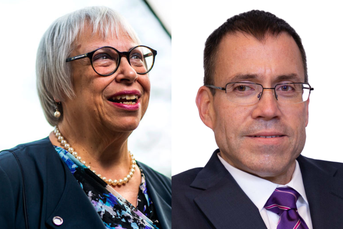Firms outline DEI efforts for Black History Month

Financial services companies recognize Black History Month, and DiversityQ has guidance for being a better ally.
Black History Month gives financial services an opportunity to reflect on its roles in advancing equality and its part in failing to address systemic oppression, both for workers and the communities they serve.
Numerous firms this month have highlighted their initiatives aimed at furthering Black equity, important work that diversity advocates and business leaders emphasize must be ongoing.
Companies that have recognized Black History Month or have announced initiatives in February include Ariel Investments, State Street Global Advisors, JP Morgan, Mastercard, Nationwide and Voya.
PIONEERING FIRM OFFERS GUIDANCE
Ariel — the first Black-owned U.S. asset management firm — published three recorded interviews around diversity, equity and inclusion, which were followed by a list of recommendations. For example, the 124,000 Black-owned U.S. employer firms represent just over 2% of all businesses, even though 14% of the country is Black. To support those companies and encourage others, corporations should carefully measure their spending for vendors and partners, Ariel noted. That should pertain to “business diversity” rather than “supplier diversity,” as the former often refers to commodity-related businesses rather than higher-income professional services, including finance, legal, advertising or technology, the company said.
Fortune 500 companies have goals of targeting 10%-15% of spending with minority-owned businesses, but on average they spend only about 2%, Ariel said, citing data from the National Minority Supplier Development Council.
“This is a $1 trillion opportunity,” the company stated.
Last year, Ariel established a private asset management firm, Ariel Alternatives, which invests in middle-market businesses that are not minority owned, with the goal of making them certified minority-owned enterprises that supply Fortune 500 companies.
The first private-equity initiative of Ariel Alternatives, called Project Black, included a $200 million investment commitment from JP Morgan Chase, according to the firm.
In its interview special, Ariel recommended that corporate boards tie executive pay to diversity and that financial services firms support and train diverse talent so that workers can eventually launch their own asset-management companies or take leadership roles at endowments and foundations.
INCREASING DIVERSITY
It’s well-established that Black workers are extremely underrepresented in the financial services industry. For example, the number of Black certified financial planners in the U.S. is currently 1,652, or less than 2% of all registrants, according to the CFP Board. However, that figure is up by nearly 14% from the number of Black CFPs in 2020, as InvestmentNews has reported.
And some companies have taken steps to increase the percentage of their workforce that is Black. Morgan Stanley, Goldman Sachs and others are among about two dozen firms that launched Equity Collective, which has a goal of getting more young Black talent interested in and prepared for financial careers, InvestmentNews this week noted.
JP Morgan, which in 2020 announced a $30 billion racial equity commitment spanning five years for lending, equity and funding for homeownership, small business growth and other uses, this month gave an update on its work within the Treasury Bank Mentor-Protégé Program. That initiative, which started in 2018, seeks to promote minority- and women-owned banks.
The firm also provides a scholarship program in conjunction with UNCF for students who aspire to be financial advisers and attend historically Black colleges and universities.
INVESTING IN BUSINESSES
Another company, State Street, announced earlier this month it had underwritten $1.5 billion of senior unsecured debt, with four Black-owned investment firms as co-managers. Those firms are Siebert Williams Shank & Co., Loop Capital Markets, CastleOak Securities and Blaylock Van.
Voya Financial, in recognition of Black History Month, published an overview of its employment diversity and noted that it has “improved [its] rate of hiring underrepresented talent by mitigating bias in job descriptions through technology, expanding sources for candidates and requiring diverse slates and interview panels.” Among other initiatives, the company also has an annual grant program for Black-owned technology businesses.
Separately, Citigroup late last year issued a one-year progress report on its racial equity goals. Its program includes expanding banking and access to credit in communities of color, investing in entrepreneurship to help reduce the racial wealth gap, investing in affordable housing and improving its own policies to become an anti-racist institution. In October, the firm became the first major bank to agree to a racial-equity audit conducted by a third party.
ANTI-RACISM CHECKLIST
DiversityQ, a sister publication to ESG Clarity, this month gave some workplace guidance aimed at helping people be better allies.
“In the workplace, commemorating Black History Month … shouldn’t be a once-a-year practice; it must form part of a long-term strategy to show up for Black colleagues as an ally in dismantling racism as well as acknowledging Black history itself,” the publication wrote.
That guidance included a checklist from Madison Butler, a DEI advocate who works with companies to help make them more inclusive. The checklist gives tips for celebrating Black History Month “365 days a year,” including: “Stop telling us you don’t see color,” “research the actual history of our oppressors and colonialism,” “have that hard conversation with your relative/partner/friend about why their racism will no longer be tolerated” and “be self-aware enough to know when your language is harmful.”
Independence still popular as recruiting recovers
Learn more about reprints and licensing for this article.








